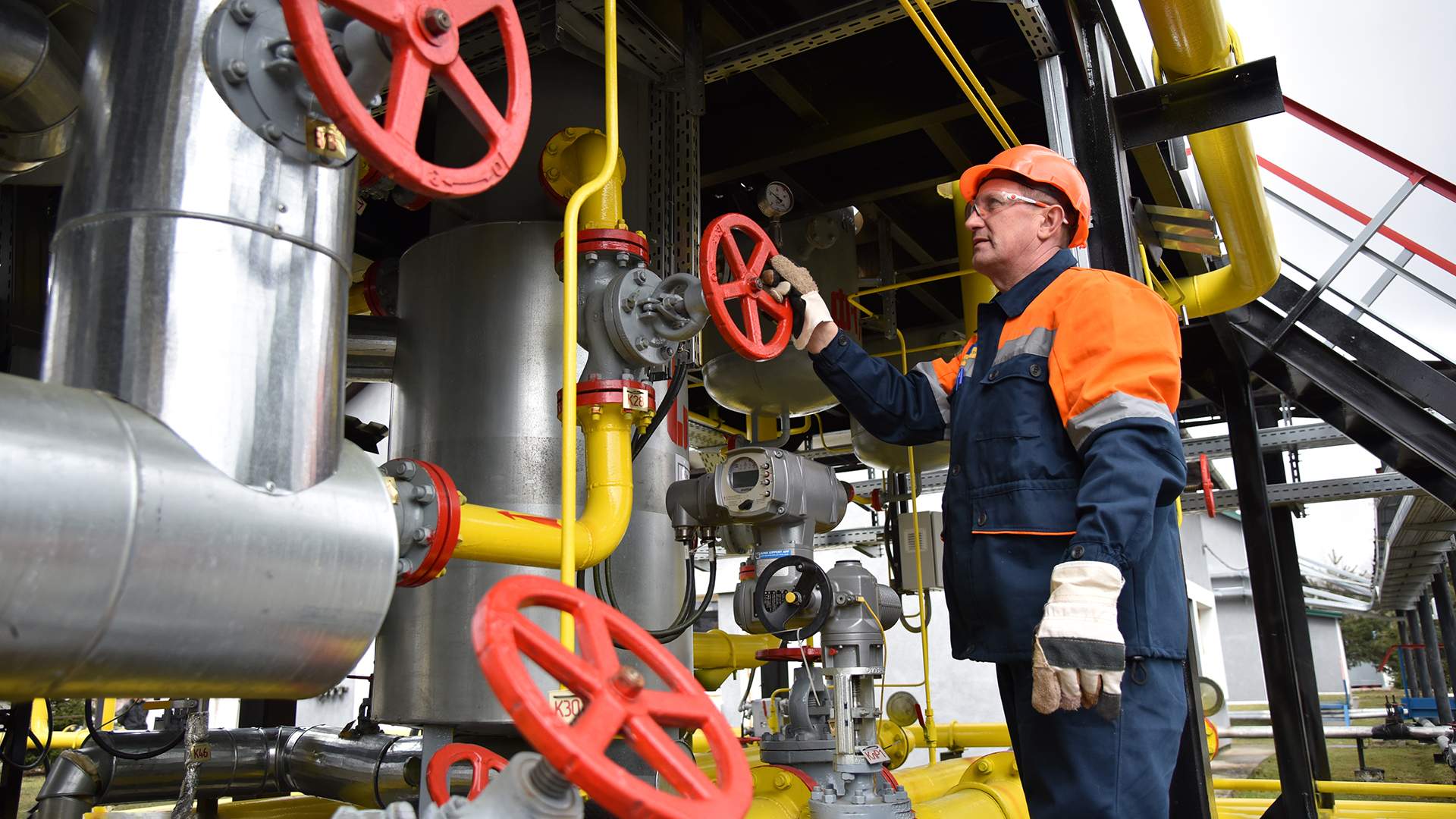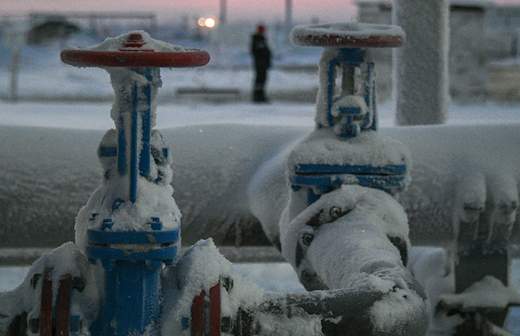Gas mask phase: energy crisis worsens in Transnistria

Moldovan President Maia Sandu has refused to let humanitarian gas, which the Russian side wanted to purchase for Transnistria, through. According to her, these supplies would be a violation of anti-Russian sanctions. At the same time, the energy crisis in the DMR is worsening, with coal reserves left for two or three weeks. "Izvestia" dealt with the situation.
A sweater instead of gas
The energy crisis in Transnistria broke out after the New Year, when the contract for Russian gas pumping through the territory of Ukraine ceased to be in force. As a result, the region, where gasification reaches 95-97%, was left without blue fuel, as well as without heat and hot water. Electricity is supplied according to the schedule, at first the light was cut off for eight hours a day, now the pause reaches five hours a day.
This winter was quite warm, nevertheless at night the temperature drops to minus values. In such conditions, residents of apartment buildings are heated with the help of numerous electrical appliances; the demand for air conditioners, heaters, electric stoves and kettles has sharply increased in the republic. It is clear that when electricity is turned on after a pause, the load on the network jumps up, resulting in numerous incidents. Thus, on January 19, utility workers recorded 118 accidents on power grids.
In the private sector, firewood is used for heating; against the backdrop of the energy crisis, residents of the republic were allowed to freely collect deadwood; firefighters and rescuers are helping immobile citizens to make supplies. However, there are also numerous incidents associated with this, as many stoves have stood idle for decades, and now their use leads to fires and carbon monoxide poisoning. It is known that since January 1, two people have died in the republic and eight have suffered from improper use of stoves.
In general, an emergency regime has been in effect in the DMR for a month and a half. To save electricity all industrial enterprises have been stopped, with the exception of food producers. School vacations lasted until January 20, and now students are back to studying remotely, as they did during the coronavirus pandemic. Kindergartens are only open for children who have both parents still going to work.
- How are we surviving? It's very hard. At home the temperature is 14-16 degrees, we go to bed in three or four coats. Children get sick all the time, because there are regular interruptions - it's warm or cold. Phones run out of power, the TV has turned into a nightstand. There is a lot of excitement because of possible accidents - people have bought electrical appliances, but the wiring is still Soviet, it's just a matter of time before someone gets a short circuit or falls asleep with the stove on. There is no work, we still have enough supplies, but the future is foggy," Pavel, a resident of Rybnitsa, tells Izvestia.
Salvation coal
Transnistria's problem is that the republic's entire energy supply is tied to gas; the Moldavskaya TPP, the largest in the region, produces electricity from the blue fuel. In early January, when Russian supplies stopped, the power plant switched to coal, but its reserves are limited. Initially, it was reported that coal would be sufficient for 50 days, i.e. until mid-February. The latest data, however, indicate that the shortage may occur as early as the end of January.
Thus, the Moldovan government spokesman Daniel Vode argued that the load on the Moldovan TPP this year is about one-third higher than last year, so the coal will run out faster. Transnistrian President Vadim Krasnoselsky also warned of a worsening crisis. "The station may go into emergency mode, there may be technological malfunctions, even a fire, then we will be left without electricity at all. And then a very bad scenario will come," he emphasized.
Interestingly, the Moldovan authorities initially stated that they were not going to interfere in any way with Transnistria's search for a way out of the crisis. "There are no obstacles for finding solutions on the part of Chisinau. We keep the pipe open, we allow gas to reach Transnistria because we want the humanitarian crisis to end as soon as possible. We also continue to take measures to ensure the energy security of the whole Moldova," President Maia Sandu said.
Further, on January 14, Vadim Krasnoselsky visited Moscow; after the trip, he said that he had agreed on humanitarian fuel supplies. According to published information, the Russian side agreed to buy gas for Transnistria on the European market in the amount of 3 million cubic meters per day, it is supposed to spend about $164 million, the Moldovan company Natural Gaz DC was to participate in the pumping. "There is no exact date of supply, but we have a little bit left to be patient", - assured the president of the DMR.
After that, the Moldovan leadership had many objections. Thus, Prime Minister Dorin Recean said that Chisinau is not satisfied with the situation when the left bank of the Dniester (Transnistria) will receive gas and the right bank will be left without cheap electricity. In its turn, the Moldovan reintegration bureau said that it is very important to observe the national legislation when supplying energy resources, i.e. the Moldovagaz company should be involved in the negotiations.
In response, Tiraspol reminded Sandu's team of its own promises. "After the actual solution of the problem and the emergence of a real supplier, we see fierce resistance from Moldovan officials, who do everything to prevent the supply of a vital energy resource from being realized. The goal pursued is to further aggravate the existing crisis," Vadim Krasnoselsky said. He also added that the DMR is ready to buy through Moldovagaz as long as heat appears in the houses.
The Moldovan president, however, does not meet the needs of the unrecognized republic. In her last interview, Maia Sandu said that gas supplies mediated by Russia would be a violation of anti-Russian sanctions. In addition, she said that Tiraspol could receive help from Chisinau and Western countries if it withdraws Russian servicemen from its territory and agrees to replace Russian peacekeepers with a contingent under the auspices of the UN or the EU.
"The republic will find itself defenseless."
Moldovan political analyst Corneliu Ciurea notes that it is still unclear what Maia Sandu's team is ultimately seeking.
- There are a number of economic issues that the parties can settle in principle. For example, in his last statement, Vadim Krasnoselsky said that Tiraspol is ready to work with the Moldovagaz company. If this is the only issue, I think that we will hear about some agreements in the coming days. If Sandu wants to use this crisis to solve political issues, everything will be much more complicated," he emphasizes.
Igor Shornikov, an associate professor at the Financial University under the Russian government and former deputy foreign minister of the DMR, says Moldova is artificially keeping Transnistria in an energy blockade.
- Russia and Transnistria have found a solution to the problem; Moldova is not required to make any financial expenditures or any other efforts, only to technically allow gas to pass through its territory. Chisinau, however, does not agree to this. Moreover, it makes political and even military-political demands. At the same time, Russian military and peacekeepers are in the DMR on absolutely legal grounds. If they are withdrawn, the republic will be defenseless. It seems that Chisinau wants to further aggravate the situation in order to bring the matter to an irreparable scenario," he argues.
Переведено сервисом «Яндекс Переводчик»









